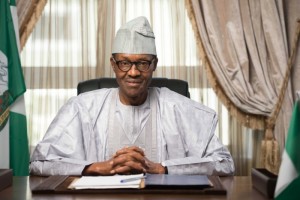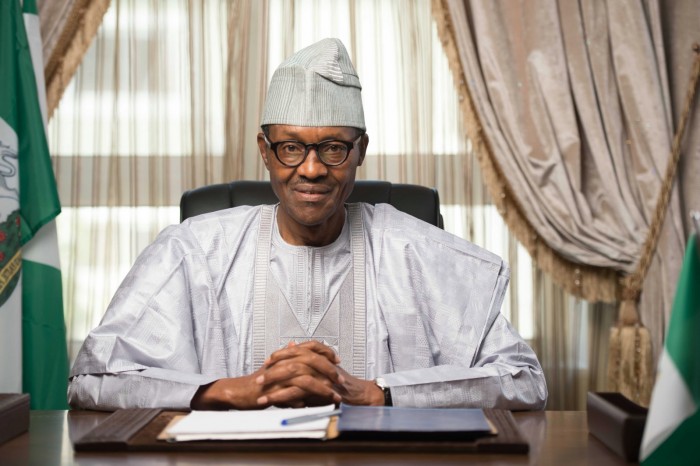Finance
Alleged Contractors’ Debt: MDGs Office denies diversion of funds

By Yemie ADEOYE
LAGOS-THE Office of the Senior Special Assistant to the President on Millennium Development Goals, OSSAP-MDGs has denied allegations of diversion of funds, embezzlement and misappropriation of funds meant for the payment of debts as alleged by some contractors reportedly being owed the office.
The contractors, through their counsel, Victor Giwa had raised the allegations in an open letter written to the President. The position was further re-echoed during a protest in Abuja on Tuesday.
In a statement issued by the office and signed by the Media Consultant to OSSAP-MDGs, Desmond Utomwen, the management claimed that “no money has been diverted or tampered with as alleged. It noted that the allegation by the contractor sand their backers that the funds budgeted for settlement of past contractual commitments is being diverted for the execution of fresh contracts is untrue and portrays their ignorance as to the workings of Government financial procedures.
The statement further noted that the demand by the contractors that money should be vired from other budgetary subheads to settle their old obligations is not within the competence of the office as this requires the authorization from the National Assembly.
“The Appropriation Act is a law of the country, which is passed by the National Assembly and signed by Mr President. Any variation or virement of funds from one sub-head to another is not within our competence. The Office is therefore obliged to implement the provisions of the 2015 Budget especially in the implementation of pro-poor projects and programmes in line with the Change Agenda of the present Administration and the mandate of the Office.”
It stated further that “It is common knowledge that under the Treasury Single Account, TSA currently being operated in the country, all public funds are domiciled in the Central Bank of Nigeria and can only be accessed through the Government Integrated Financial Management Information System (GIFMIS) platform, which is managed by the Office of the Accountant General of the Federation.”
“In all financial transactions we are guided by the provisions of the Public Service Rule (PSR), the Financial Regulation (FR) and the Public Procurement Act, 2007 amongst other Extant Rules and Regulations.”
While expressing the commitment of the office to offset the outstanding commitments, the management stated that “the Office has not received cash-backing for the Second Quarter release as alleged. Only the First Quarter has been released and over N2 billion out of that has been used to settle past contractual commitments. It maintained that “earlier this year, precisely in June, the sum of N5 billion was also utilized 100% to settle past contractual commitments; and it is further proposed that when the Second Quarter cash backing is received, a similar commitment of over N2billion is to be used to settle the liabilities of contractors, amongst others.
According to the statement, while the efforts of the office to offset the debts have hitherto received the commendation from the contractors, as is evident in their letter to the office dated26th August, 2015the current action by a section of the contractors is believed to be informed by mischief and some sinister ulterior motives other than the recovery of their debt obligations.
“It is worthy of note that in pursuit of their agitations, the said Contractors have taken their cases to the Acting Head of Civil Service of the Federation, the Honourable Minister of Budget and National Planning, Honourable Minister of Finance, the Attorney General of the Federation and the Accountant General of the Federation. We are delighted to note that all of these eminent government functionaries are currently looking into their agitations with a view to addressing same.”
“While the issue of debts to contractors is not peculiar to OSSAP-MDGs, it is appropriate to advise the Association to conduct themselves in a most civil and peaceful manner in expressing their grievances. Resorting to wild allegations, blackmail, name-calling, character assassination, intimidations, public incitement, violent demonstrations and malicious spreading of falsehood suggest some sinister motives which are not clear to us.
“On our part, our doors remain open as always to constructive engagements, dialogue and peaceful resolutions of all issues pertaining to past commitments. In this regard, we have held several consultative meetings with the executives of the Association and we still remain ever ready to engage them in future.” The stated concluded.
Business
Nigeria pays US$4.9 billion on petrol subsidy in 2024- NNPCL
It was however noted by Biztellers.com.ng, that although subsidy is back in effect, the main reason for that is the increasingly weak state of the Naira and the country’s extreme dependence on products importation. Also unlike the previous subsidy era, where several oil marketers were getting free subsidy refunds for unverified product importation, this subsidy era is witnessing only one importer, the NNPCL, which in effect is the sole receiver of government subsidies.
Yemie ADEOYE
INSPITE of the official position of the Nigerian government that the controversial petrol subsidy is gone for good as announced by the President on assumption of office, the state owned Nigerian National Petroleum Corporation Limited, NNPCL has disclosed that petrol subsidy is still fully operational in Nigeria, although, under a different identity.
Umar Ajiya, Chief Financial Officer at the NNPCL, disclosed that it cost the company a staggering N7.8 trillion (US$4.9) to cover this price gap in the first seven months of 2024.
Rather than simply referring to these claims as subsidies, he stated that the company is merely managing the price difference in petrol imports on behalf of the federation, stressing that this should not be misconstrued as a return to subsidy payments.
![]() This revelation has reignited discussions on whether the NNPC is indirectly offering subsidies, a concept typically defined as selling a product below its cost price.
This revelation has reignited discussions on whether the NNPC is indirectly offering subsidies, a concept typically defined as selling a product below its cost price.
Documents reviewed by Biztellers.com.ng showed that the term “subsidy” was used extensively in official correspondence between the NNPCL and the presidency, particularly in reference to the “shortfall.”
Recall that President Bola Tinubu reportedly approved NNPC’s request to utilize the 2023 final dividends due to the federation to offset these costs.
However, during a media briefing on Monday about the company’s 2023 audited financial statements, Ajiya refuted claims that the NNPC is involved in any subsidy scheme.
Ajiya further disclosed that the Nigerian government owes the NNPC N7.8 trillion ($4.9 billion) in subsidy-related debts for the period from January to July 2024.
In furtherance of his clarification to the News Agency of Nigeria (NAN), Ajiya insisted that no subsidy payments have been made to any marketer in the last nine years, citing the NNPC’s role as the sole importer of petrol under supply contracts.
He said, “In the last eight to nine years, NNPC Ltd. has not paid anyone a dime as a subsidy; no kobo has been disbursed by NNPC Ltd. in the name of subsidy. No marketer has received any payment from us for subsidy.”
“What has been happening is that we have been importing PMS, which has been landing at a specific cost price, and the government tells us to sell it at half price. So the difference between the landing price and that half price is a shortfall.
“And the deal is between the Federation and NNPC Ltd., to reconcile, sometimes they give us money, so there is no money exchanging hands with any marketer in the name of subsidy.”
Ajiya remained silent on how much of the $4.9 billion could have been remitted to the federation account if the NNPC had not been covering the “shortfall.”
It was however noted by Biztellers.com.ng, that although subsidy is back in effect, the main reason for that is the increasingly weak state of the Naira and the country’s extreme dependence on products importation. Also unlike the previous subsidy era, where several oil marketers were getting free subsidy refunds for unverified product importation, this subsidy era is witnessing only one importer, the NNPCL, which in effect is the sole receiver of government subsidies.
Banking
CBN Denies Currency Devaluation

The Central Bank of Nigeria (CBN) has refuted claims of devaluing the.
Earlier reports suggested that the CBN had devalued the Naira, lowering its exchange rate from N631 to the dollar, compared to the previous day’s rate of N461.60 at the Importers and Exporters (I&E) window.
However, the Central Bank of Nigeria (CBN) released a statement on Thursday through its Acting Head of Corporate Communications, Dr. Isa Abdulmumin, categorizing the report as false information.
In the statement titled ‘CBN Has Not Devalued The Naira’, he said the attention of the apex bank was drawn to the news report by an Abuja based newspaper edition of June 1, 2023, titled “CB Devalues Naira To 630/51”.
However, the CBN stated categorically that the news report was replete with outright FALSEHOODS and destabilizing innuendos, ‘reflecting potentially willful ignorance of the said medium as to the workings of the Nigerian Foreign Exchange Market.’
“For the avoidance of doubt, the exchange rate at the Investors’ & Exporters (I&E) window traded this morning (June 1, 2023) at N465/USS1 and has been stable around this rate for a while.
“The public is hereby advised to ignore the news report by Daily Trust in its entirety, as it is speculative and calculated at causing panic in the market,” the CBN spokesman added.
He, therefore, advised media practitioners to verify their facts from the Central Bank of Nigeria before publishing in order not to misinform the public.
Banking
BREAKING: CBN Increases Interest Rate By 0.5%

The interest rate in Nigeria has been raised to 18.5 percent, up by 0.5 percent, from 18 percent where it was pegged in March 2023.
The Central Banks of Nigeria’s (CBN) Monetary Policy Committee (MPC) resolved to this effect at its third meeting of 2023 in Abuja, on Wednesday.
Governor, CBN, Godwin Emefiele, made the disclosure in the communiqué of the MPC’s meeting, thereafter.
While engaging the media at the end of the two-day meeting, Emefiele, said the committee voted to keep the asymmetric corridor at +100 and -700 basis points around the MPR.
In the view of the MPC, rising inflation rate is traceable to the high energy cost and challenges around the supply chain, among others, which lie outside the corridors of the CBN.
Emefiele said, “The current trend in price development would continue to be monitored by the bank with greater collaboration with fiscal authority to address the drivers of inflation.”
Biztellers reports that the CBN had effected six consecutive interest rate increases, which has seen the rate move from 11.5 percent in March 2022 to 18.5 percent in May 2023.















